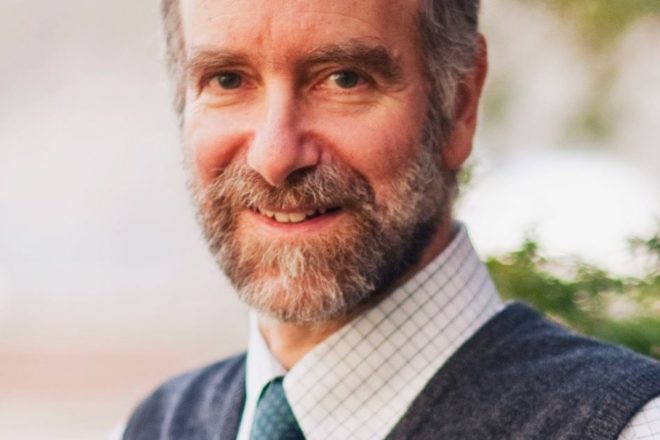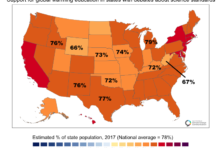Climate Corner: Helping Your Health While Helping the Environment
- Share
- Tweet
- Pin
- Share

By Jonathan Patz
Considering the parallel rise in chronic diseases (such as diabetes, obesity and heart disease) with trends in fossil fuel use around the globe, our greatest challenge today (and opportunity) lies at the nexus of health and energy.
Much of this inter-linkage can be explained across three human behavioral and related policy domains: energy, food systems and transportation/urban design.
Scientists no longer question the link between burning fossil fuels and the disruption of Earth’s climate – with the myriad of adverse consequences already experienced and far more yet to come.
The amazing thing, however, is that cutting emissions for climate change policy also saves lives. More than seven million people die annually from air pollution, so this health “co-benefit” from energy policy choices is not trivial.
And food for thought: the Western diet – high in meat consumption and processed foods – harms both our health and environment. Livestock production requires the largest fossil fuel inputs per gram of protein produced.
Eating lower on the food chain for environmental reasons will also lower saturated fats in our diets and reduce the risks of stroke, heart disease and cancer.
Maybe the most direct dual benefit to our health and the planet emerges from transportation policy. Many cities are designed for cars rather than for people. The result? Sixty percent of Americans don’t meet minimum daily requirements for exercise, and obesity is ranked our number one epidemic. Comparing cities with highest levels of bicycle commuting with those with lowest levels, obesity and diabetes rates are more than 20 percent lower.
Smart urban design for “active transport” (walking and cycling) is therefore another double win, both for the environment and our health.
New policies in energy, food systems and transportation can provide us a healthy energy society, and in so doing, offer enormous health and environmental benefits for which we must not delay.
This article originally appeared on ensia.com.
Jonathan Patz is director of the Global Health Institute at the University of Wisconsin-Madison. He is a professor and the John P. Holton Chair in Health and the Environment with appointments in the Nelson Institute for Environmental Studies and the Department of Population Health Sciences. For 15 years, Patz served as a lead author for the United Nations Intergovernmental Panel on Climate Change (IPCC) – the organization that shared the 2007 Nobel Peace Prize with Al Gore.
The Climate Corner is a monthly column featuring a variety of writers from around the state and Door County addressing various aspects of the challenges and opportunities climate change presents. The column is sponsored by the Climate Change Coalition of Door County, which is dedicated to “helping to keep our planet a cool place to live.” The Coalition is always open to new members and ideas. Contact the Coalition at [email protected].

